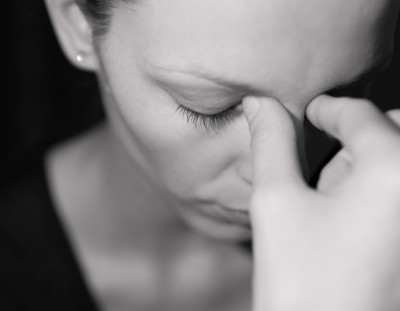We’ve all heard of postpartum depression, a form of clinical depression that occurs after childbirth. It is a serious medical issue and is probably precipitated by the wide fluctations in hormones after childbirth, compounded by lack of sleep and other features of mothering a newborn. Postpartum depression is a medical condition that requires medical attention.
There’s another phenomenon, far more widespread, causing misery to many more women. I suggest we call it postpartum oppression. Its cardinal symptom is a suffocating sense of inadequacy provoked by the guilt and shame of failing to meet the arbitrary guidelines of the dominant mothering ideologies, natural childbirth and attachment parenting.
Consider this recent piece featured on news.com.au, Modern mums are anxious, stressed about babies: new study:
…[R]esearch shows mothers are feeling ashamed, marginalised and guilty because they can’t meet the strict messages of breast feeding and sudden infant death campaigns.
They feel even more inadequate when told to use their maternal instinct to solve mothering issues when they are confused by conflicting information.
And they are battling to live up to an idealised image of how motherhood “should” be.
Furthermore:
)Over simplified public health messages that breast is best … overstate the risk of not doing this and can make mums feel anxious.
Public health campaigns, health professionals and others could reduce this anxiety by providing realistic, understandable, numerical information to assist decision making, they say.
“Nobody doubts that the message that promotes breast feeding is a good thing, but breastfeeding might not be easy to do and for some it is extremely difficult. Women who make an informed choice not to go ahead can be made to feel guilty and ashamed,” says Dr Rowe.
Women who decide to bottle feed can be discharged from hospital without any bottles, with no instructions on mixing formula, which can make them feel unsupported and marginalised, she says.
It’s not just pressure to breastfeed that leads to postpartum oppression; pressure to have an unmedicated vaginal birth, and irresponsible speculation on the purported dangers of C-sections are major contributing factors. These triggers for postpartum oppression share several characteristics:
- They are arbitrary measures of motherhood formulated by privileged white women and reflecting their preferences and prejudices.
- They grossly exaggerate the benefits of breastfeeding and vaginal birth and flat out lie about the purported benefits of unmedicated childbirth.
- The condemnation of C-sections is based on hyperbole, hysteria and bad research on the purported dangers of C-sections.
- A cadre of childbirth paraprofessionals, midwives, doulas, childbirth educators, and lactation consultants profit from these arbitrary standards.
- They are profoundly anti-feminist, reducing mothering to the ways that women use their breasts, vaginas and uteri, and minimizing the much greater impact of maternal love, learning and character.
In contrast to postpartum depression, which occurs spontaneously and is to be regretted, postpartum oppression is deliberately inflicted by some women (generally Western, white and relatively privileged) on other women (including women of color and women of lower socio-economic classes.) Even though it is a woman-made problem, it is responsible for considerable suffering.
The primary mode of transmission of postpartum oppression is the internet.
Dr Rowe says mother anxiety was being made worse because of the internet which encouraged worried parents to try and find more information when much of it was not evidence based.
“The solution is to try and find a trusted source of information and limit yourself to that,” says Dr Rowe.
Health professionals and those in contact with mothers needed to unpack simplified public health messages and reassure and support mothers in the choices they made, she said.
They should address the inaccurate stereotype that mothering is instinctive, which can paint a highly idealised image of how motherhood ‘should’ be.
“Mothering is a set of learned skills and you learn on the job,” Dr Rowe says.
The deliberate infliction of postpartum oppression has created a crisis of confidence among new mothers and a pervasive sense of guilt and shame. It is a perversion of existing scientific evidence; an arbitrary standard foisted by privileged women on those less privileged; it enriches childbirth paraprofessionals at the expense of their patients, and it is profoundly anti-feminist, grounding successful mothering, as it does, in women’s reproductive organs and effectively ignoring everything else about them …
and it has got to stop!


